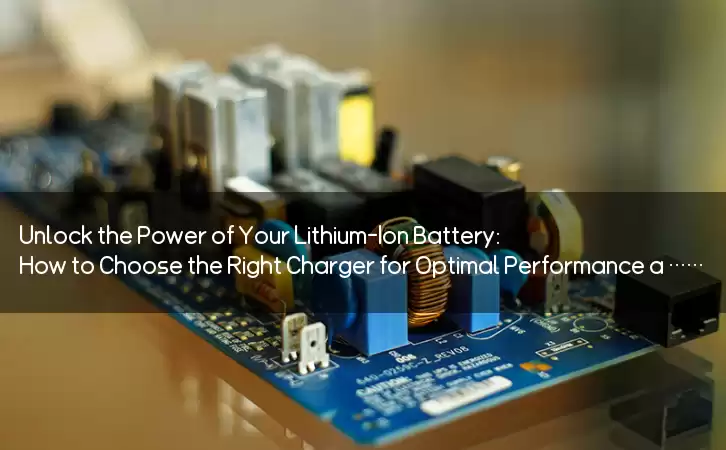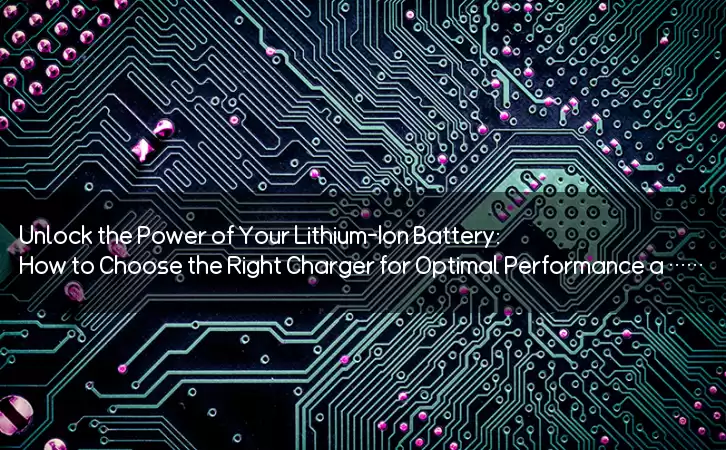Information Center
Unlock the Power of Your Lithium-Ion Battery: How to Choose the Right Charger for Optimal Performance and Safety
Published:2023-08-06 10:34:38 Author:Green WCND Views:77Lithium-ion batteries have become a popular choice for powering mobile devices such as smartphones, tablets, laptops, and electric vehicles due to their high energy density and long cycle life. However, when it comes to charging them, not all chargers are created equal. In this article, we will discuss what chargers work with lithium-ion batteries and how to choose the right charger for your needs.

First and foremost, it is important to note that lithium-ion batteries require a specific charging voltage and current to function properly and safely. Overcharging, undercharging, or using an incompatible charger can result in reduced battery performance and lifespan, or even cause the battery to overheat and explode.

The most common type of charger that works with lithium-ion batteries is the USB charger. This type of charger typically provides a 5-volt output and can be used to charge a wide range of devices, including smartphones, tablets, and some laptops. However, not all USB chargers are created equal. The best USB charger for lithium-ion batteries is one that provides a constant and stable output of 5 volts and can deliver the required charging current (usually between 1 and 2 amps) for your device.
Another type of charger that works with lithium-ion batteries is the AC adapter. This type of charger is typically used to charge laptops, cameras, and other devices that require more power than a USB charger can provide. AC adapters come in different voltages and current ratings, so it is important to choose a charger that matches your device’s specifications.
Some devices, such as electric vehicles and power tools, require even more power and may use specialized charging systems. For example, many electric vehicle charging stations use a DC fast charging system that can provide a high-voltage direct current to charge the battery quickly. These systems are designed specifically for lithium-ion batteries and can safely charge the battery to full capacity without damaging it.
When choosing a charger for your lithium-ion battery, it is important to consider not only the voltage and current rating but also the quality and safety features of the charger. Look for chargers that are certified by safety organizations such as UL, ETL, or CE, which ensure that the charger has been tested and meets certain safety standards. Also, avoid using counterfeit or knockoff chargers, as these may not provide the correct voltage or current and could damage your battery or device.
In conclusion, lithium-ion batteries require a specific charging voltage and current to function properly and safely. The most common chargers that work with lithium-ion batteries are USB chargers and AC adapters, but some devices may require specialized charging systems. When choosing a charger, it is important to consider the voltage and current rating, the quality and safety features, and the compatibility with your device. By choosing the right charger, you can ensure that your lithium-ion battery performs at its best and lasts for a long time.
Power Adapter Design and Customization Guide for Portable Electric KettlesI. Common Design Types for Portable Electric Kettle Power AdaptersPortable electric ke···
I. Common Design Types of Power Adapters External Independent Type (Most Common) Design: A standalone adapter (e.g., "black brick") connected to the p···
Handheld Vacuum Cleaner Power Adapter Selection GuideIntroductionHandheld vacuum cleaners have become a mainstream tool for household cleaning due to their port···
Drill Power Adapter Selection Guide.drill-container { font-family: Arial, sans-serif; line-height: 1.6; max-width: 800px; margin: 0 auto; padding: 20px; } .dril···





